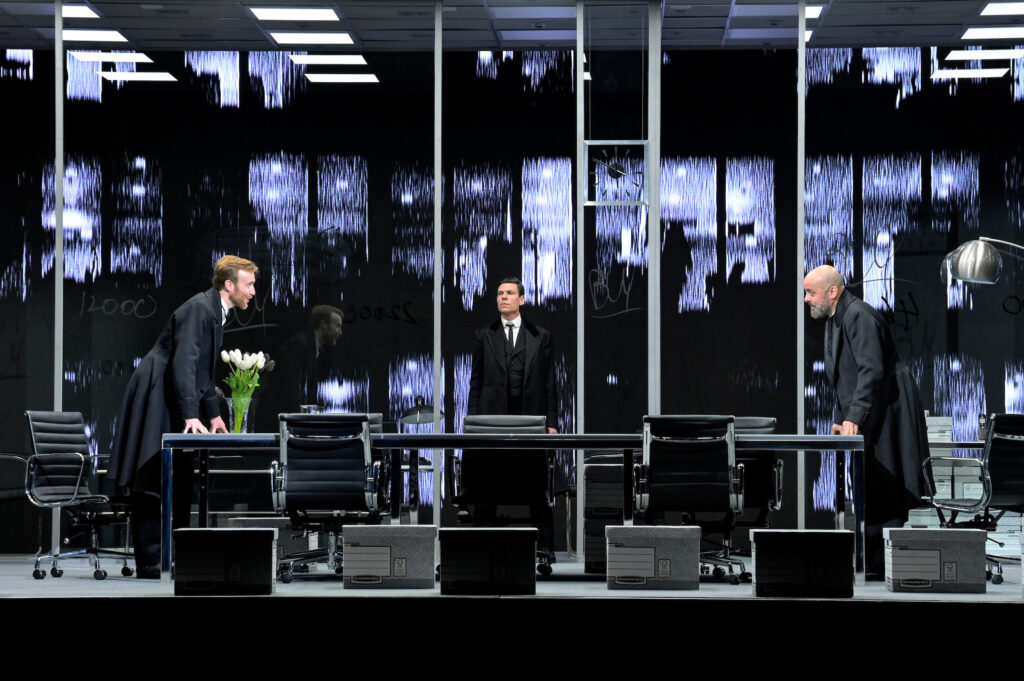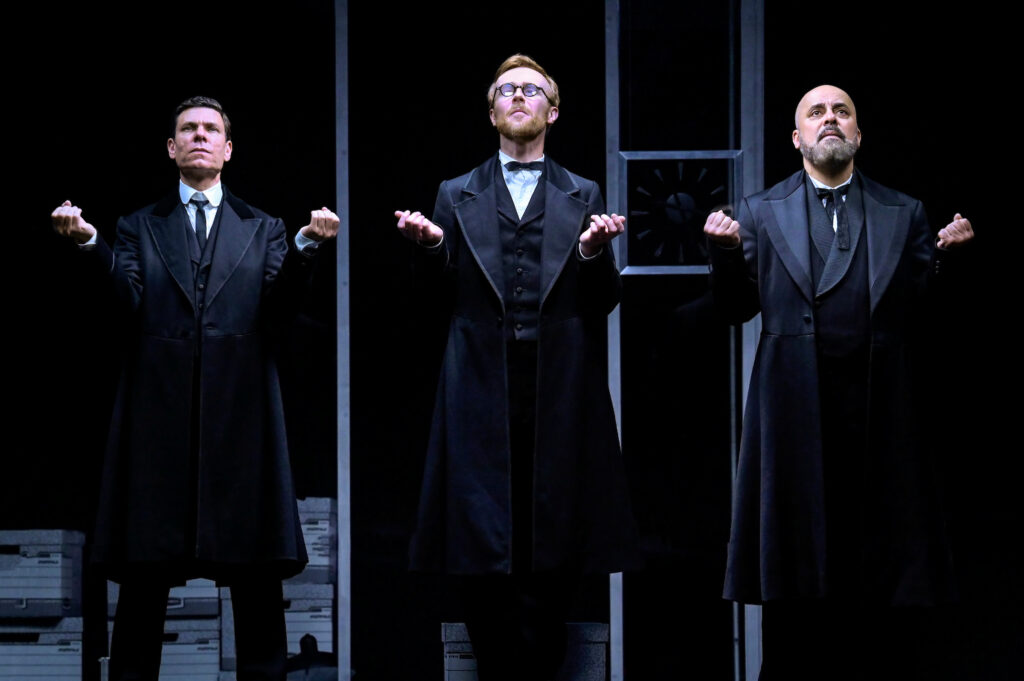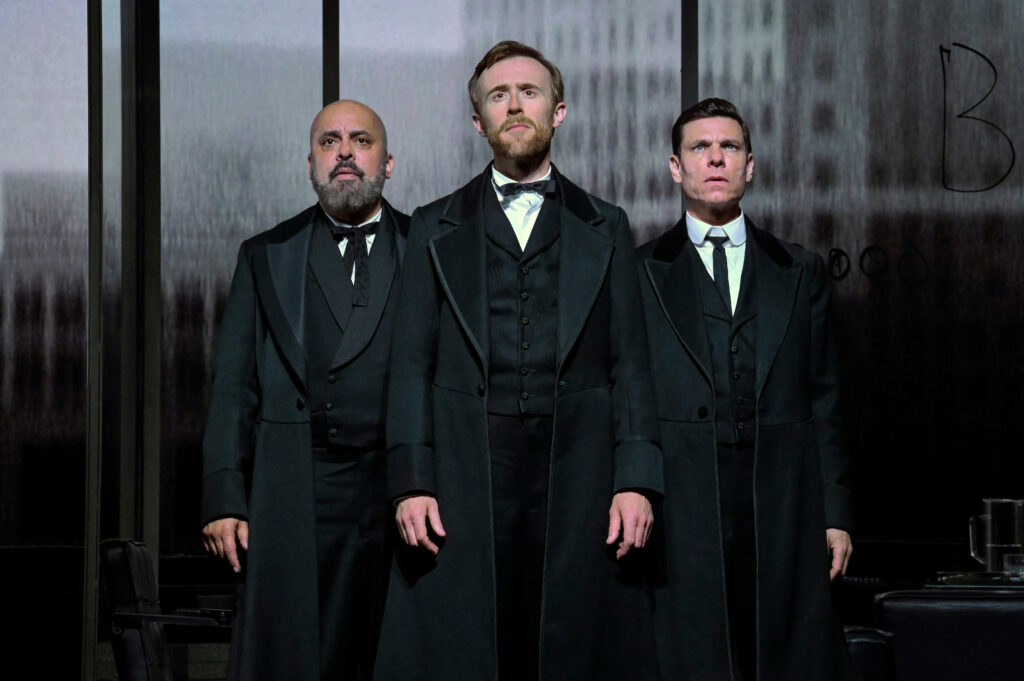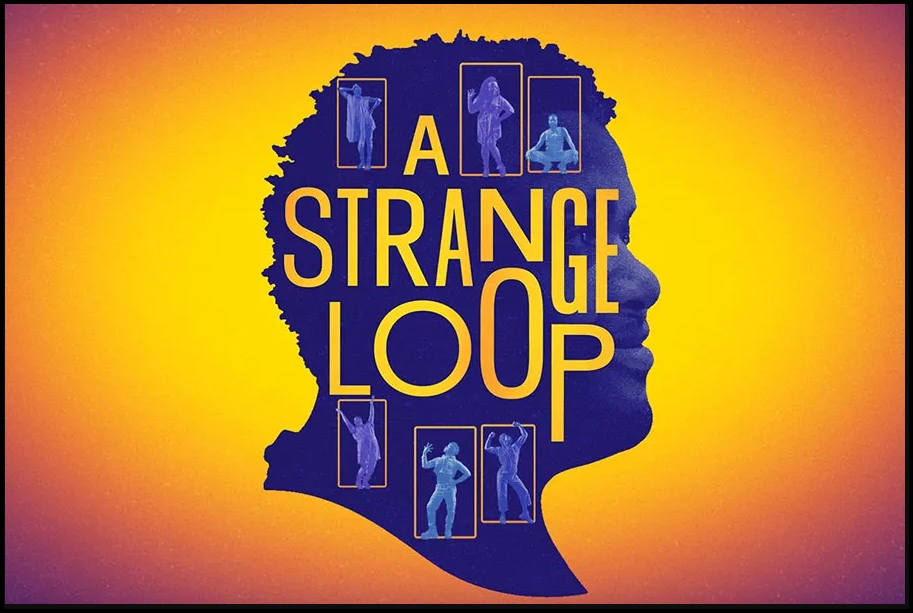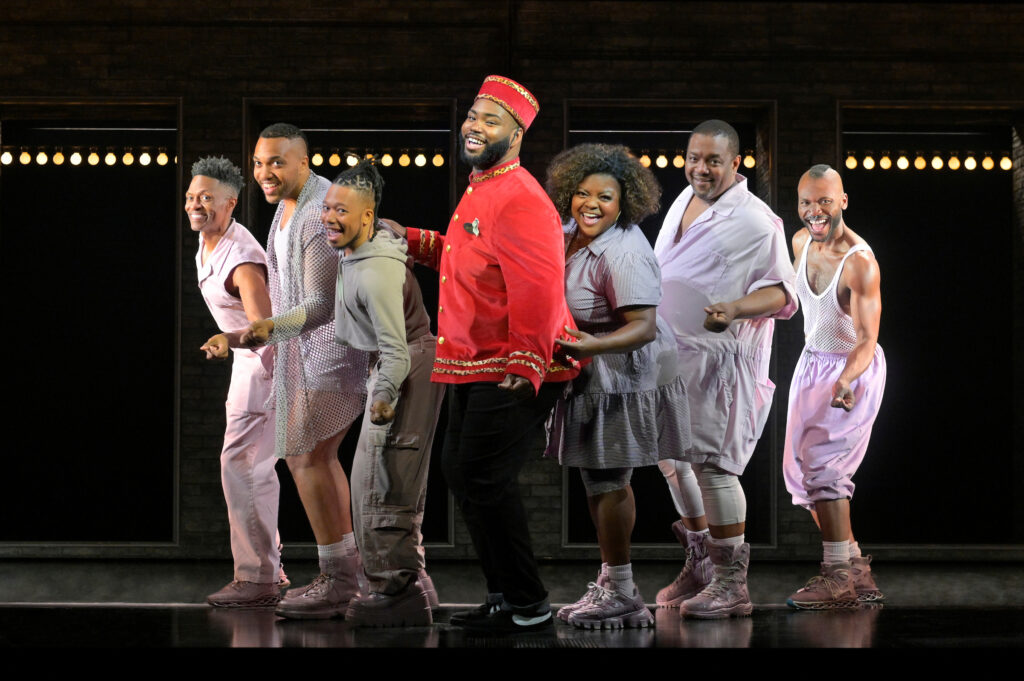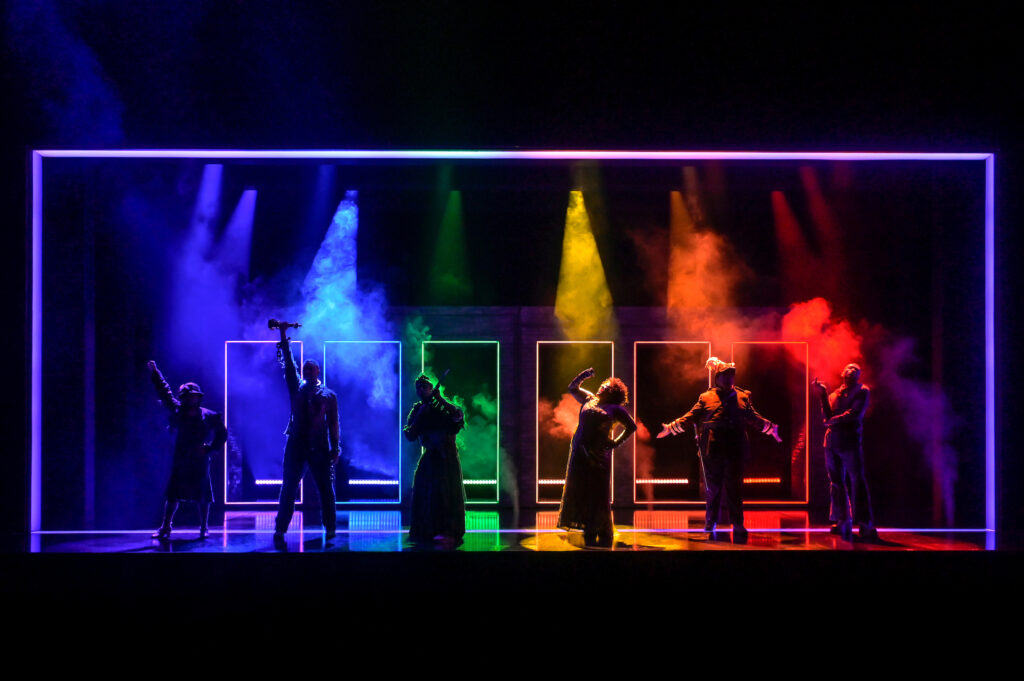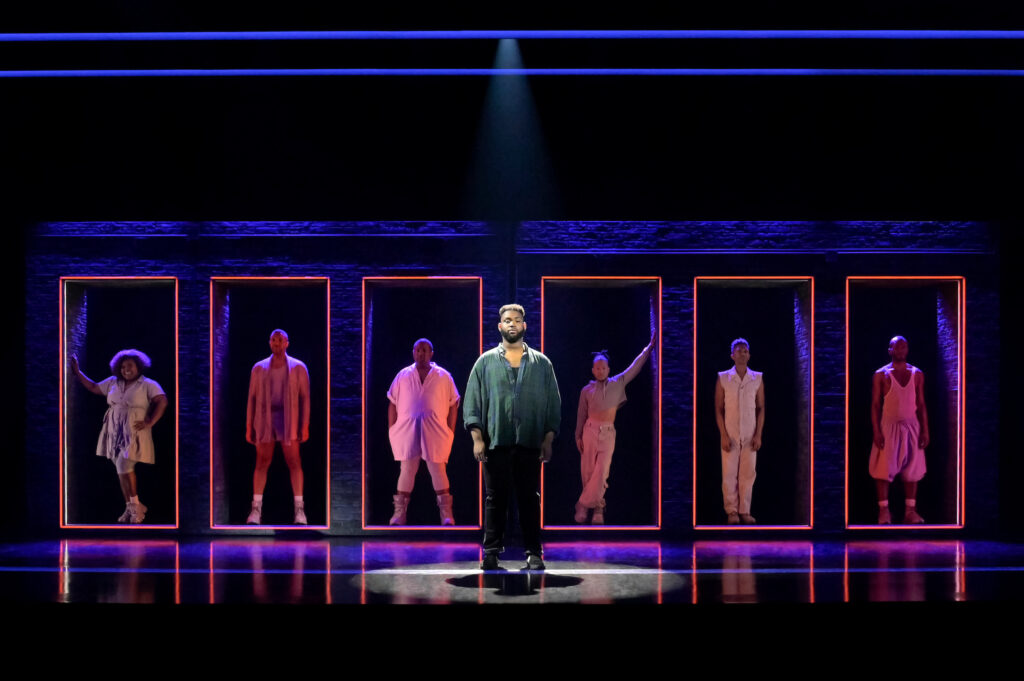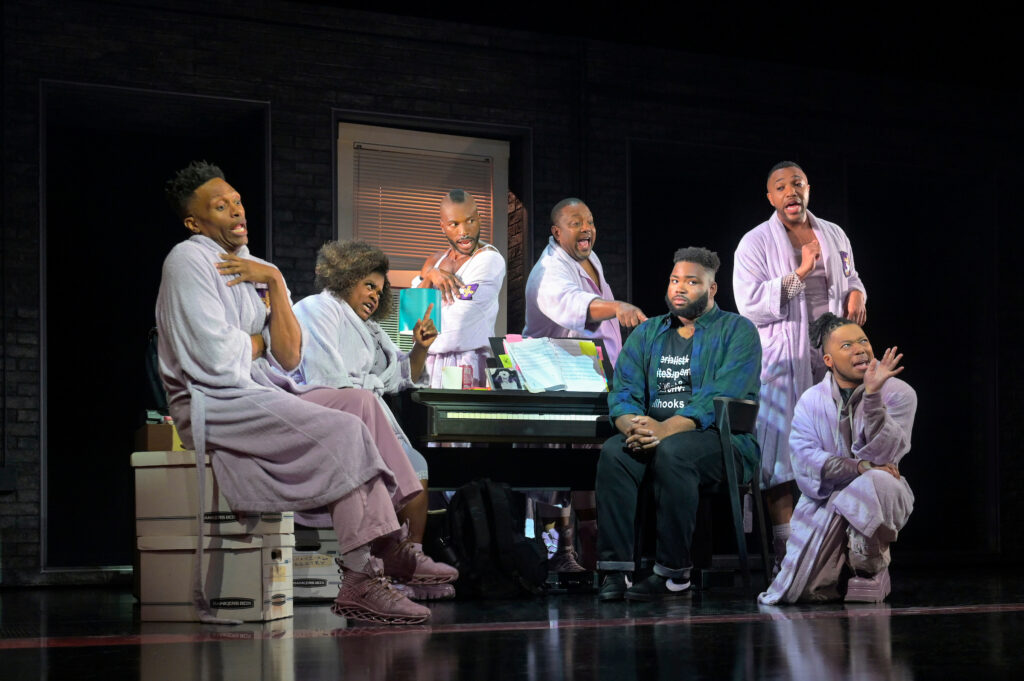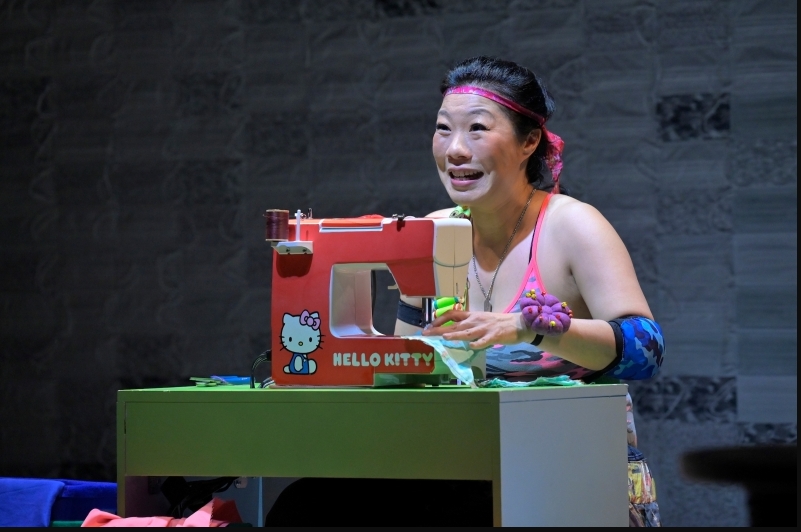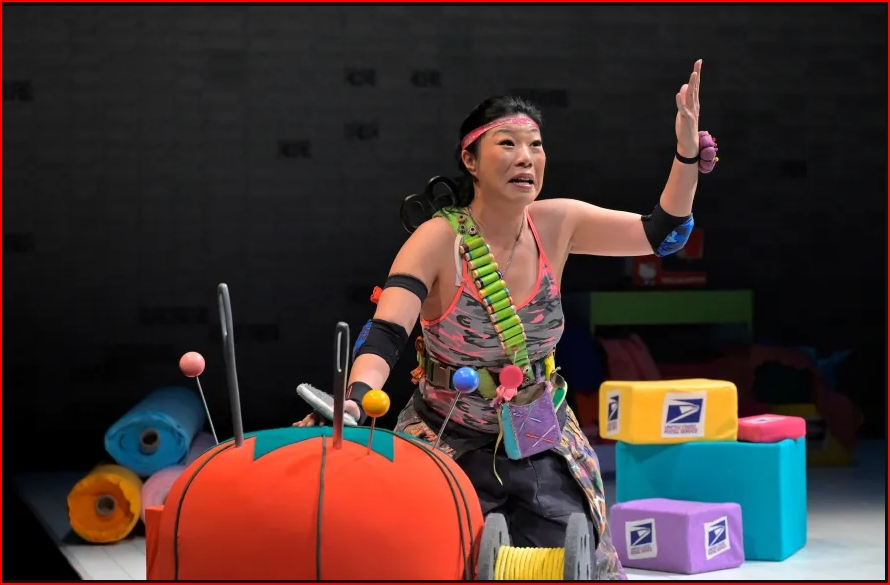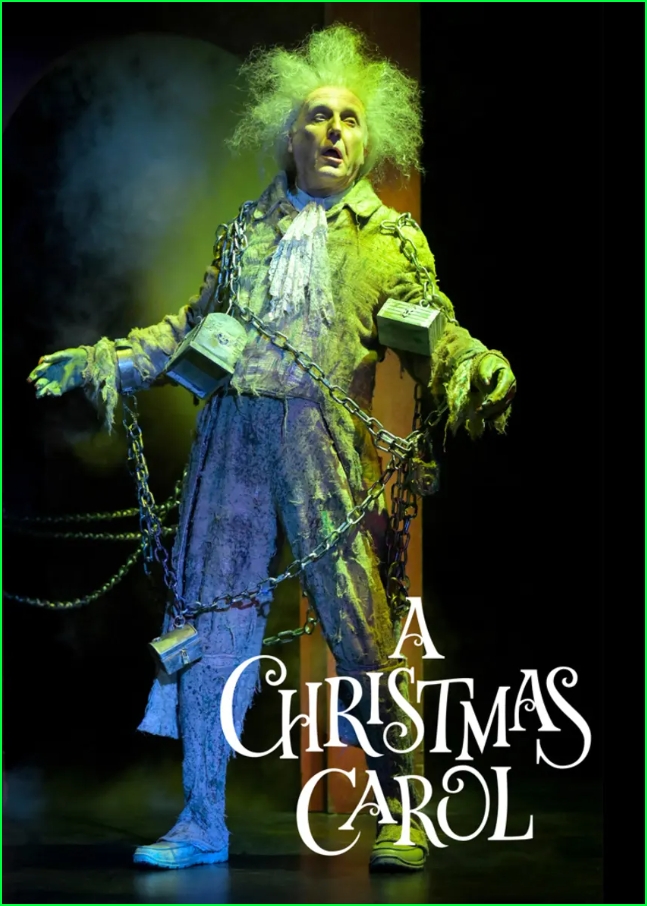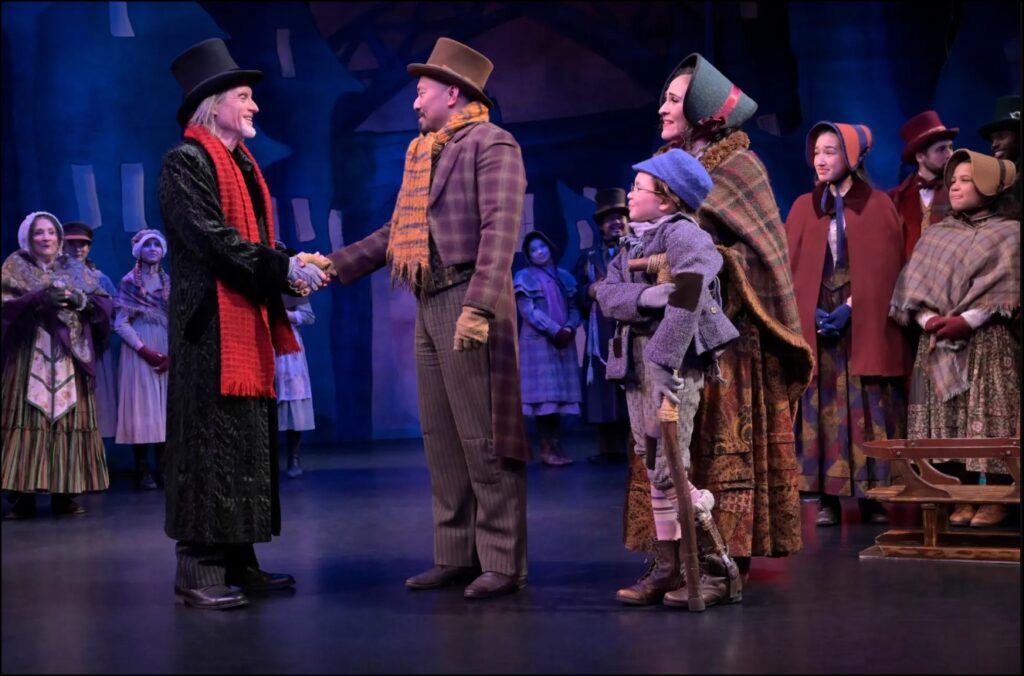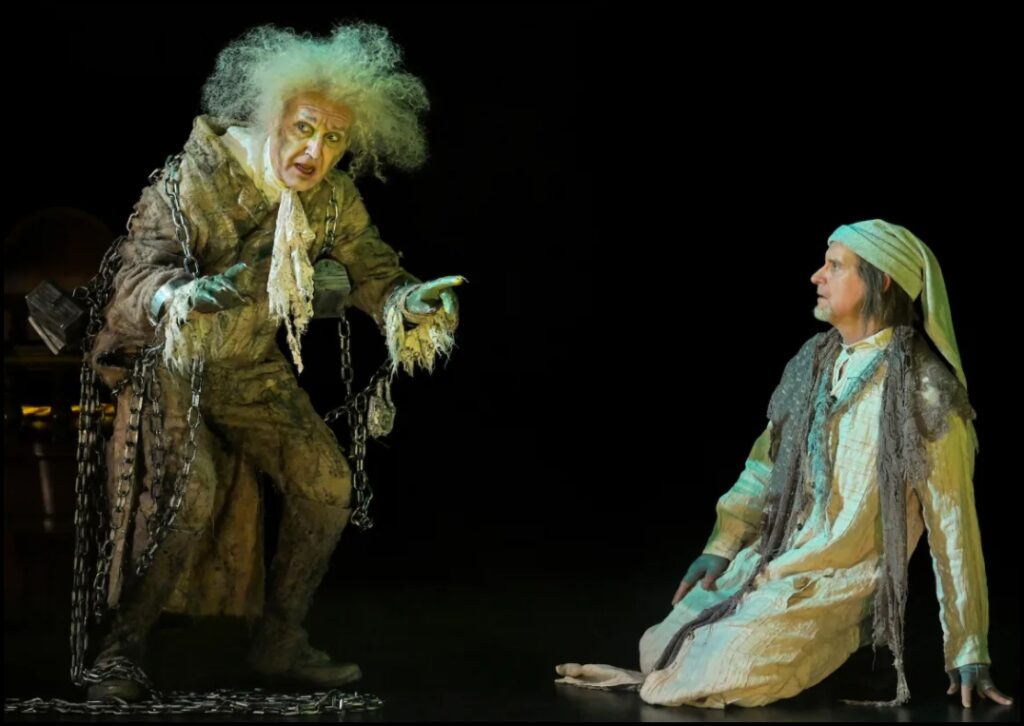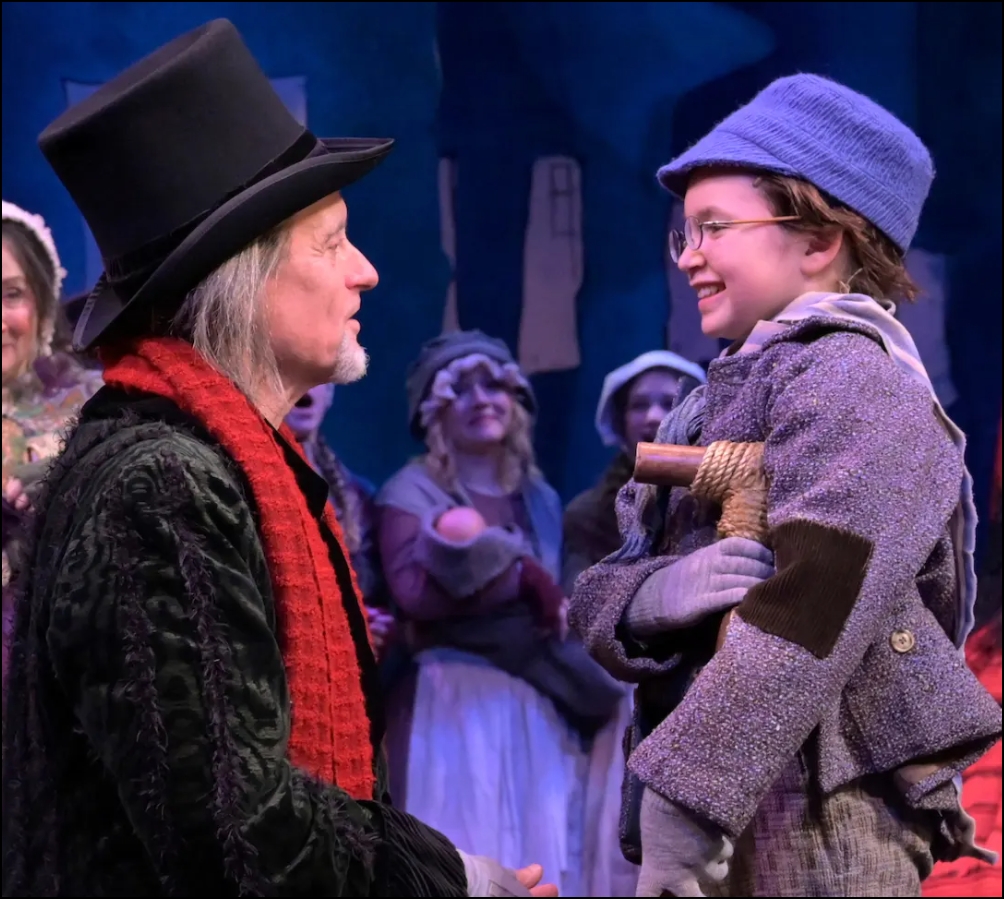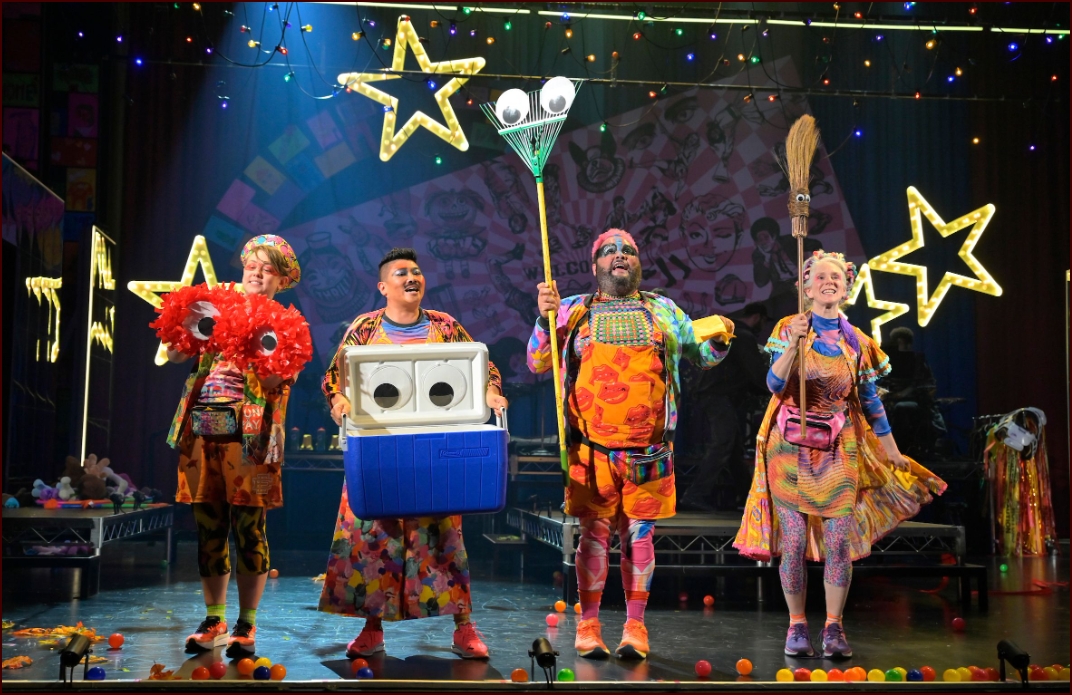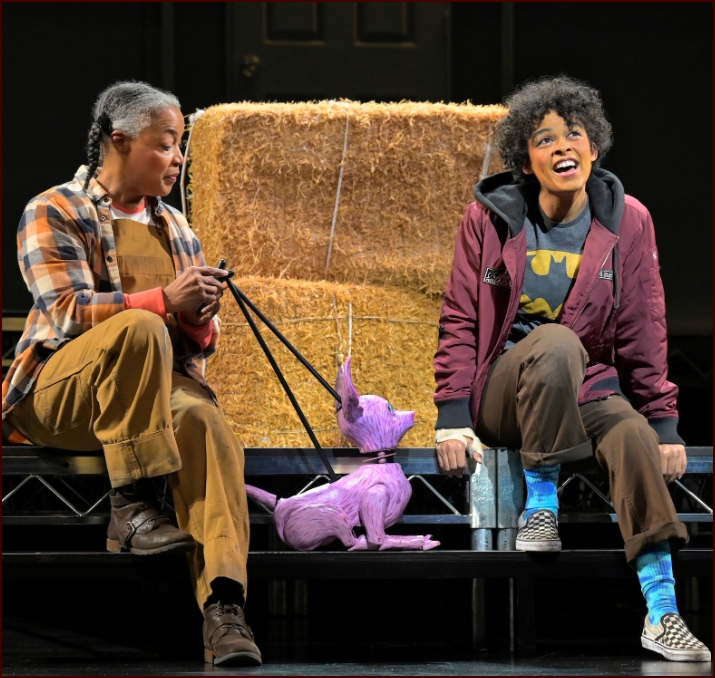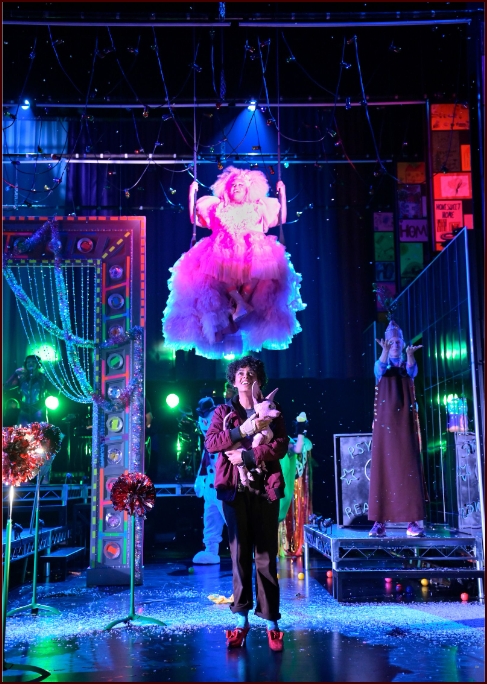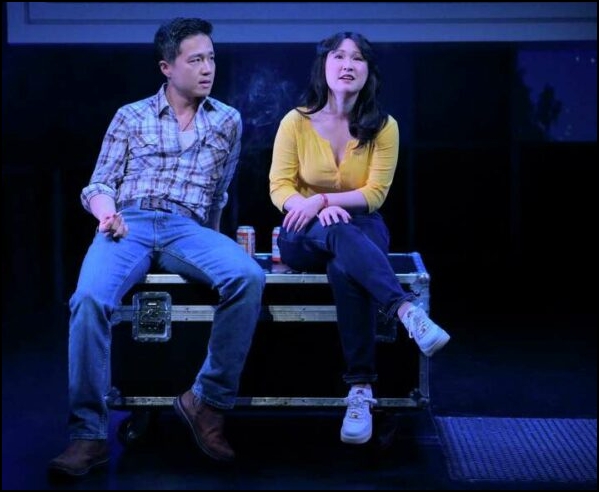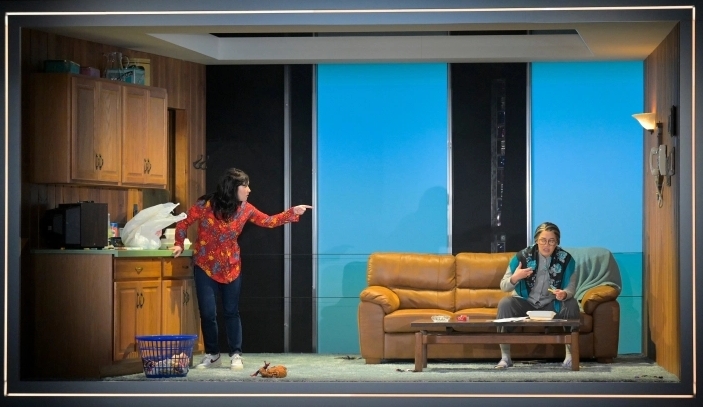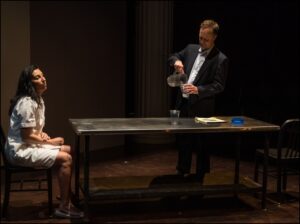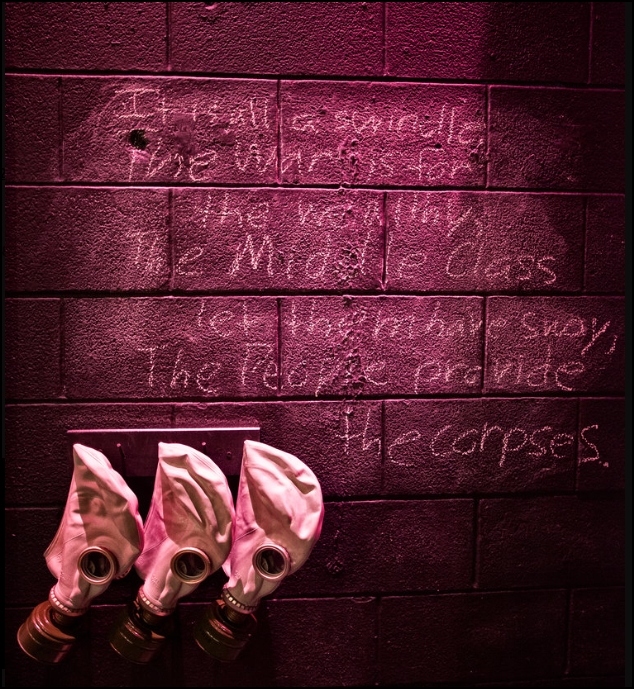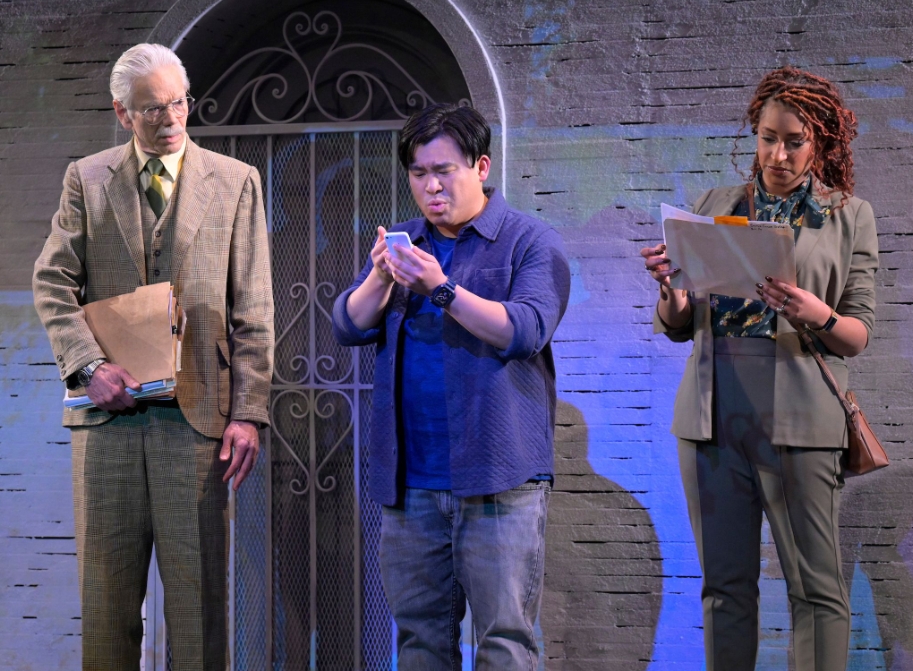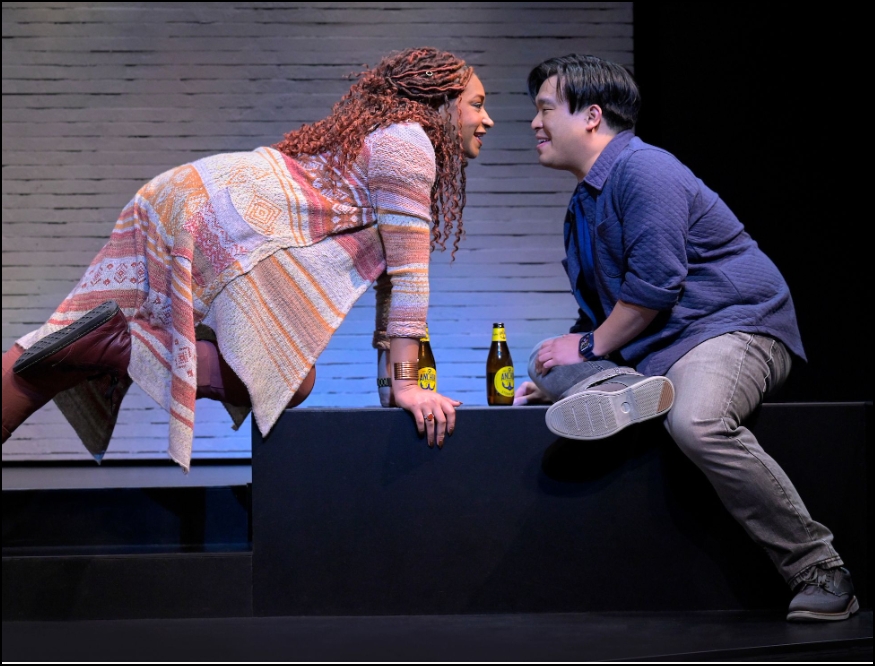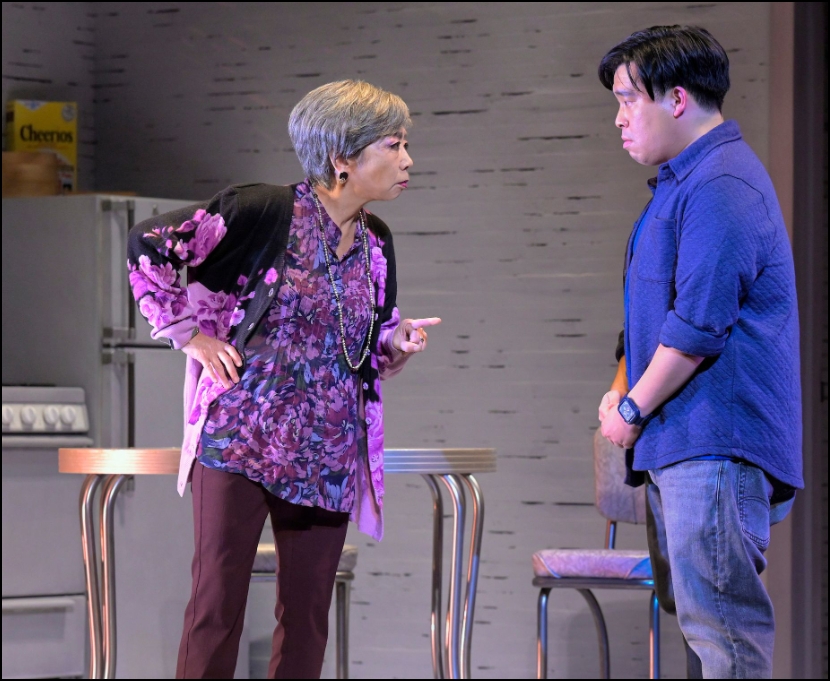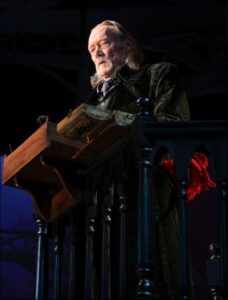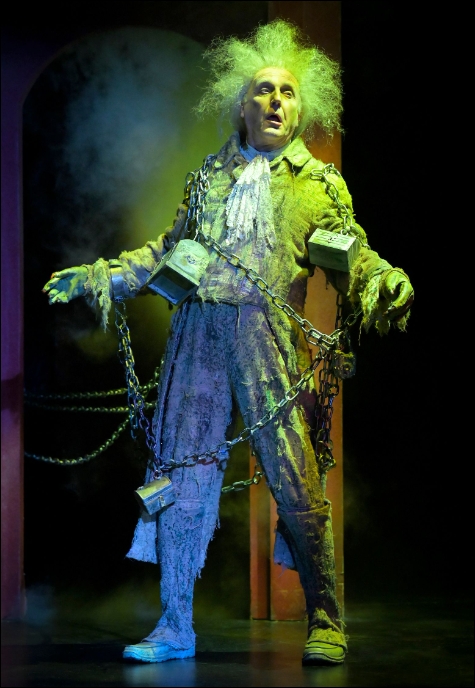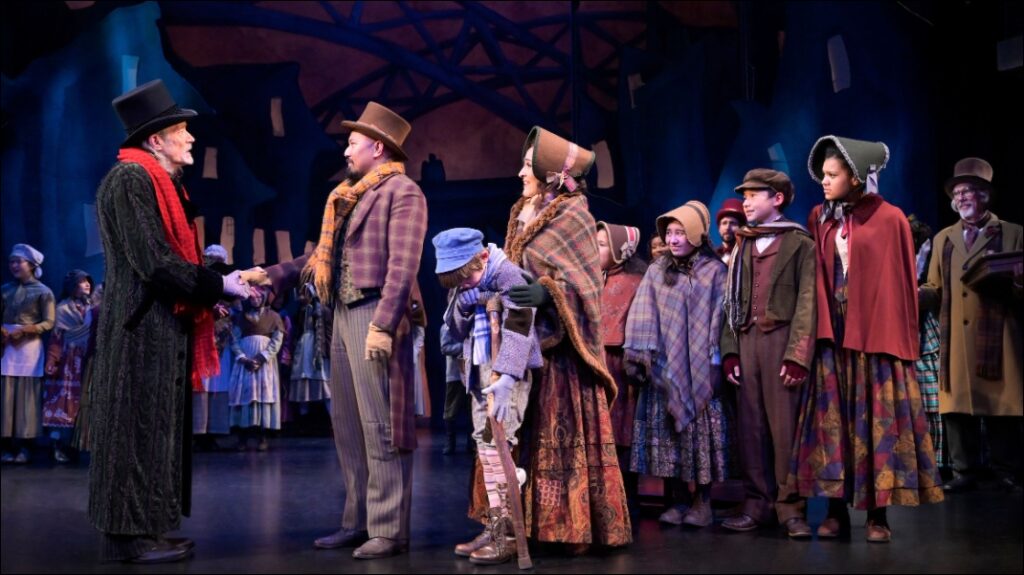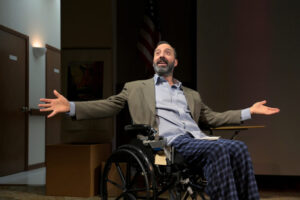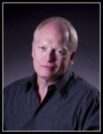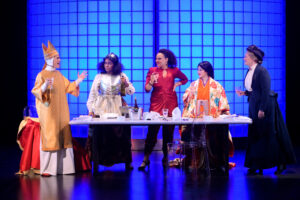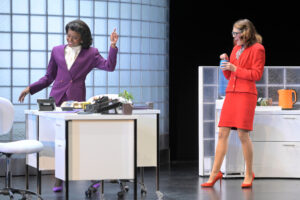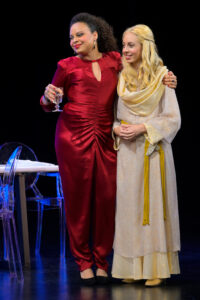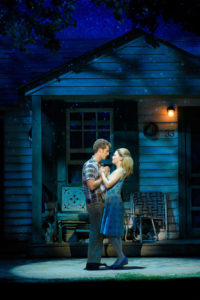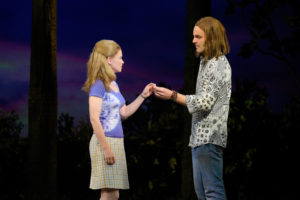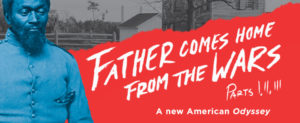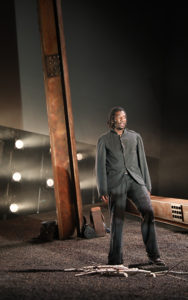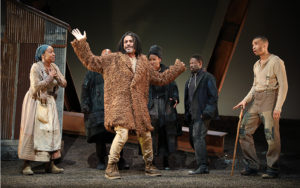By Barry Willis
Attraction and repulsion are equal opposites in Noel Coward’s classic Private Lives at American Conservatory Theater through October 6.
On a veranda at a seaside villa, newlyweds Elyot and Sibyl prepare to enjoy the first night of their honeymoon when Elyot spies his previous wife Amanda just over the hedge separating their rooms. It’s hate at first sight, soon yielding to a passionate, guilt-ridden reunion that they must hide from their new spouses — Amanda’s being an innocent fellow named Victor.
” … Private Lives is a riotous, enormously satisfying season opener …”
Have Elyot and Amanda made a serious mistake in getting divorced? So it appears to them as they get reacquainted, but as soon as they do, their irresolvable differences come roaring back. They flirt and frolic, then fight like two rabid cats in a sack while trying to keep the whole distasteful business hidden from Sybil and Victor.
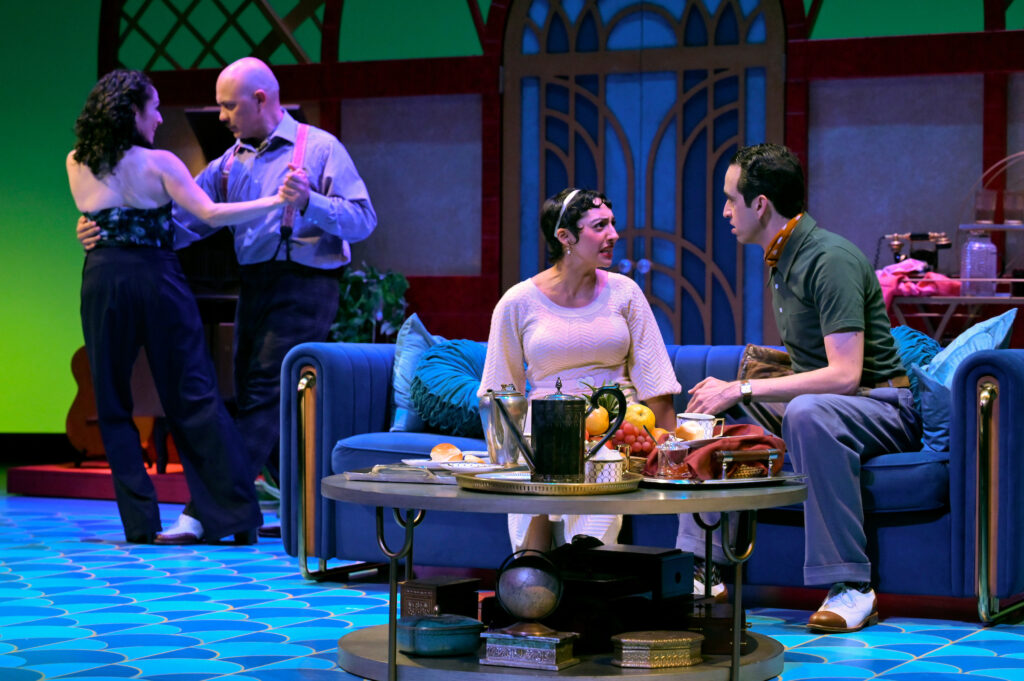
It’s a fantastic setup for one of the greatest romantic comedies ever written. Private Lives has lost no relevance in the approximately 100 years since it first appeared. Human nature and obsessive relationships are permanent conditions, as ACT makes abundantly clear in a gorgeously presented and beautifully paced production directed by KJ Sanchez.
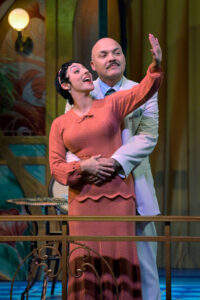
Hugo E. Carbajal stars as the urbane, self-indulgent Elyot, with Sarita Ocon opposite him as his volatile ex-wife and potential new lover, Amanda. The pair have extraordinary energy together—and extraordinary comedic skills, pushing their characters against each other and apart again in a spectacular pas de deux, one that includes a pitched battle using palm fronds as cudgels.
Brady Morales-Woolery appears as the upright, gentlemanly Victor, with Gianna DiGregorio Rivera as the bright-eyed, eager, innocent Sibyl. It would be hard to imagine four more compatible actors in this show.
It’s a brilliant bit of casting by director Sanchez, who mentions in the playbill having worked with the quartet in previous productions.
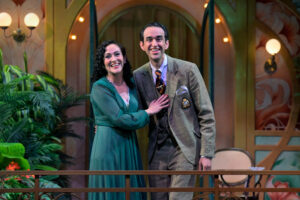
Their combined history is a tremendous asset for ticket buyers. Pacing, elocution, projection, character interaction, and choreography flow seamlessly in a delightful production hampered only by a too-short run.
Private Lives is further enhanced by spectacular set design from Tanya Orellana, whose two sets are glorious homages to the Art Deco era, right down to the Erté sculptures gracing the second one. Orellana’s sets are so ingeniously conceived that they blend perfectly with the Toni Rembe Theater’s ornate interior, to such an extent that the entire theater seems to be an extension of the stage.
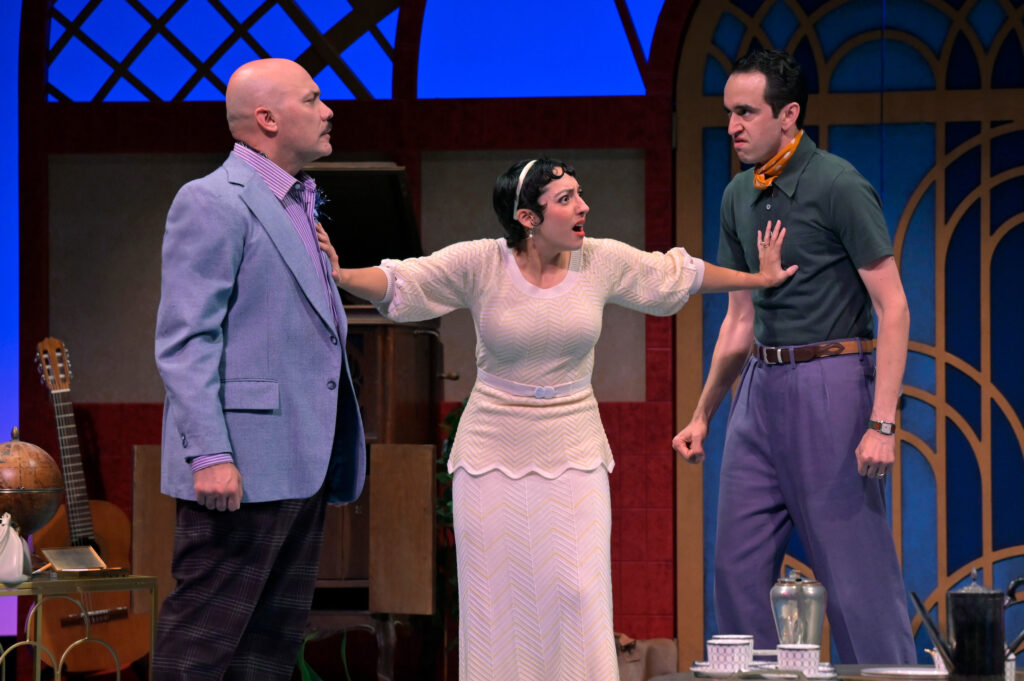
The sound design from Jake Rodiguez couldn’t be better. He knows exactly the sound of an old Victola and emulates it perfectly. Sanchez took the liberty of resetting Coward’s seaside villa from the south of France to Argentina and Amanda’s apartment from Paris to Montevideo, Uruguay—choosing the Argentine angle for its sense of “forced gaiety,” reinforced by a tango choreographed by Lisette Perelle.
This Private Lives is a riotous and enormously satisfying season opener for ACT. Executive Director Jennifer Bielstein acknowledged the show’s universality in a brief post-show chat. “We’ve all lived through that,” she nodded.
Anyone who’s endured an obsessive, contentious relationship will find Private Lives a welcome comedic catharsis.
-30-
 ASR NorCal Executive Editor Barry Willis is an American Theatre Critics Association member and SF Bay Area Theatre Critics Circle president. Contact him at barry.m.willis@gmail.com
ASR NorCal Executive Editor Barry Willis is an American Theatre Critics Association member and SF Bay Area Theatre Critics Circle president. Contact him at barry.m.willis@gmail.com
| Production | Private Lives |
|---|---|
| Written by | Noel Coward |
| Directed by | KJ Sanchez |
| Producing Company | American Conservatory Theater (ACT) |
| Production Dates | Through Oct 6th, 2024 |
| Production Address | Toni Rembe Theatre, 415 Geary Street, SF, CA |
| Website | www.act-sf.org |
| Telephone | (415) 749-2228 |
| Tickets | $25 – $110 |
| Reviewer Score | Max in each category is 5/5 |
| Overall | 4.75/5 |
| Performance | 4.75/5 |
| Script | 4.75/5 |
| Stagecraft | 4.75/5 |
| Aisle Seat Review PICK? | YES! |

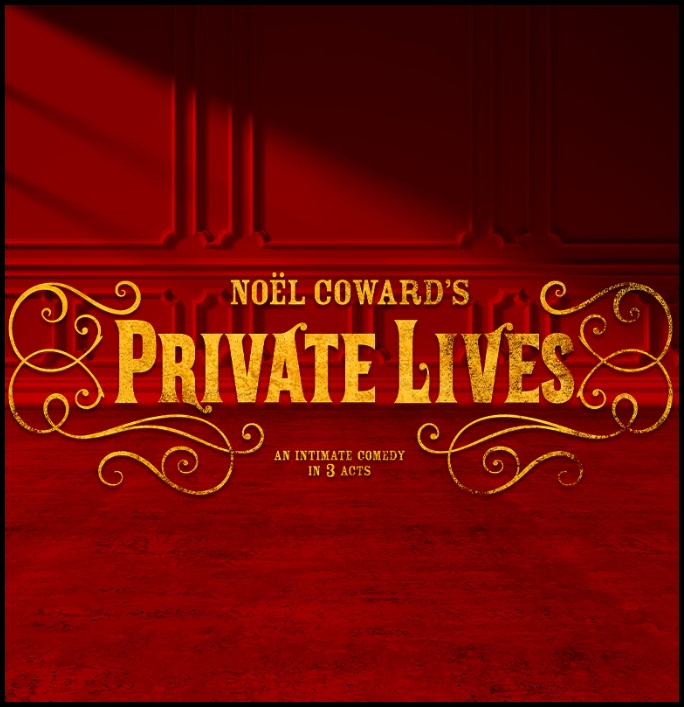
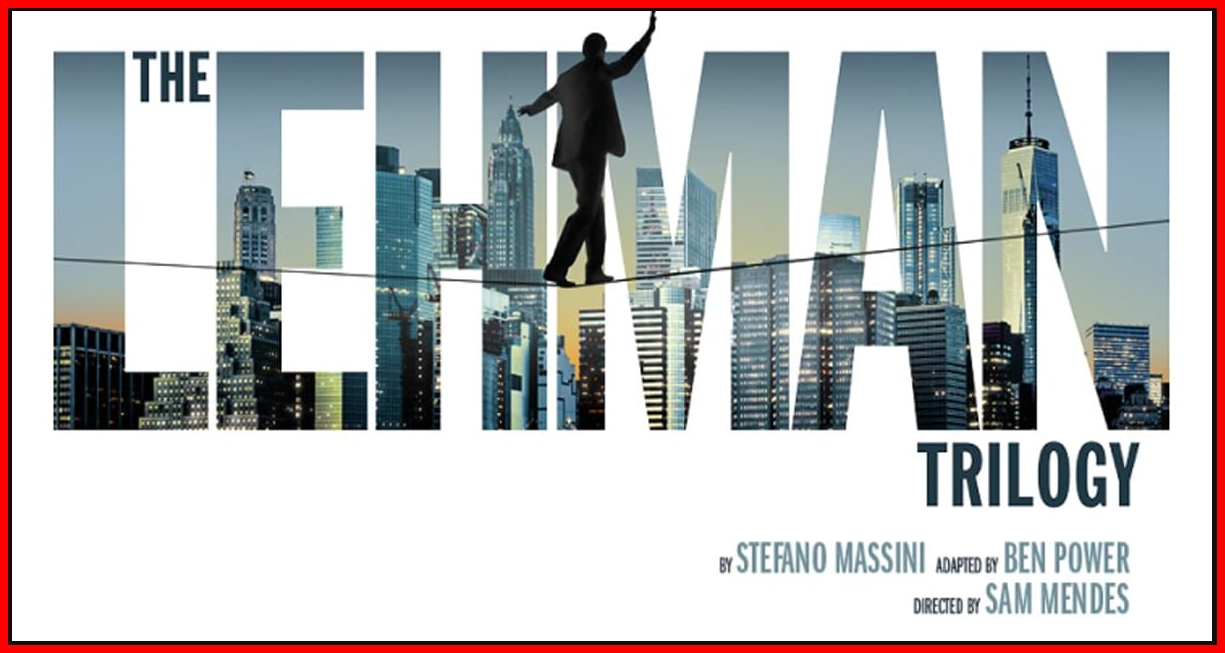
 A family saga may never be better depicted than in The Lehman Trilogy, at ACT’s Toni Rembe Theatre through June 23.
A family saga may never be better depicted than in The Lehman Trilogy, at ACT’s Toni Rembe Theatre through June 23.